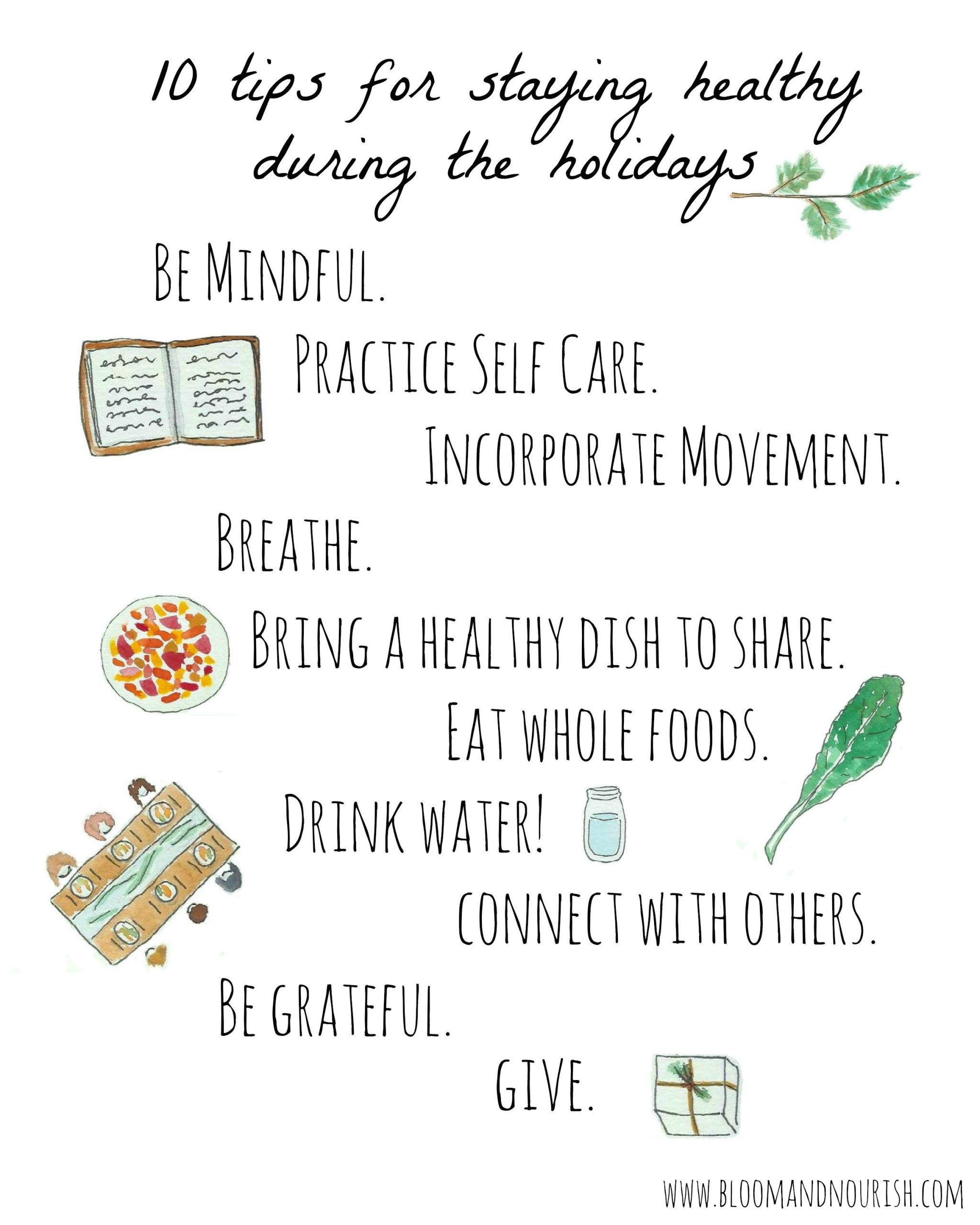Keys to Managing Holiday Stress: Self-Compassion and Self-Care
Created by Lori Kaniewski, LCPC, NCC, Clinical Supervisor

Holidays can trigger various stressors: financial pressures (the burden of gift-giving, travel, and holiday expenses), navigating family dynamics and social obligations, loneliness (being far from loved ones or grieving the loss of loved ones), and the burden of high expectations (feeling pressured to create the perfect holiday experience). The constant hustle and bustle the holiday season brings can lead to burnout, anxiety, and even feelings of isolation. Recognizing these stressors is the first step in mitigating their impact and taking care of ourselves.
Understanding Self-Compassion
Self-compassion involves treating yourself with the same kindness and understanding that you would offer to a friend. Practicing self-compassion is a large part of self-care. It encompasses three core elements:
- Self-Kindness: Being gentle and understanding toward yourself, especially in times of struggle.
- Common Humanity: Recognizing that suffering and personal inadequacy are part of the shared human experience.
- Mindfulness: Maintaining a balanced awareness of your emotions, acknowledging difficult or uncomfortable feelings without over-identifying with them.
(For more information on self-compassion, look to Kristin Neff, Ph.D. She is an expert on self-compassion.)
The Role of Self-Compassion
Self-compassion serves as a powerful tool to counteract life stressors:
- Reducing Perfectionism: By practicing self-kindness, you can let go of the need for a flawless holiday. Acknowledging that it’s okay not to have everything perfect can alleviate the pressure you put on yourself.
- Enhancing Emotional Resilience: Self-compassion allows you to face holiday challenges with a balanced perspective. Instead of getting overwhelmed by negative emotions, you can acknowledge them, validate your feelings, and move forward with greater ease.
- Promoting Healthy Boundaries: When you treat yourself with compassion, you’re more likely to prioritize your well-being. This can mean saying no to events or obligations that don’t serve you, allowing you to conserve your energy and focus on what truly matters.
- Fostering Connection: By embracing common humanity, you realize that others are also navigating their own struggles during the holidays. This understanding can foster deeper connections and empathy, making interactions more meaningful.
Why Self-Care Matters
- Restores Balance: Engaging in self-care activities helps restore a sense of balance in our lives. By taking time for ourselves, we can recharge mentally and physically, enabling us to better handle holiday demands.
- Enhances Mood: Self-care activities, whether it’s exercising, meditating, or simply taking a quiet moment, can significantly boost your mood. This is essential during a time when feelings of sadness or stress may be heightened.
- Improves Relationships: When we care for ourselves, we are more equipped to care for others. This can lead to more positive interactions with family and friends, reducing conflicts and fostering connection.
- Encourages Mindfulness: The holidays can easily turn into a whirlwind of tasks. Self-care encourages mindfulness, allowing us to be present and truly enjoy the moments we often rush through.
Practical Ways to Practice Self-Compassion and Self-Care this Holiday Season
- Mindful Breathing: Take a few moments each day to practice mindful breathing. This can help ground you in the present and create space to acknowledge your feelings without judgment. Practicing Mindfulness can alleviate anxiety and center your thoughts.
- Affirmations: Use positive affirmations to counter negative self-talk. Remind yourself that it’s okay to feel stressed and that you are deserving of kindness and care. The way we talk to ourselves, and about situations we are in, has a huge impact on how we are feeling.
- Reflective Journaling: Spend some time journaling about your holiday experiences. Focus on what you are grateful for and how you can approach challenges with compassion.
- Set Boundaries: It’s easy to overcommit during the holidays. Learn to say no to invitations or obligations that drain your energy. Prioritize what truly matters.
- Schedule Downtime: Carve out time for yourself amidst the chaos. Whether it’s reading a book, taking a long bath, or going for a walk, prioritize these moments to recharge.
- Stay Active: Physical activity is a great stress reliever. Incorporate exercise into your routine, even if it’s just a short daily walk. It boosts endorphins and can provide a much-needed break.
- Nourish Your Body: With all the festive treats around, it’s important to maintain a balanced diet. Focus on whole foods and hydration, which can have a positive impact on your mood and energy levels. Adequate sleep is also important for our health.
- Limit Screen Time: Social media can heighten feelings of comparison and inadequacy. Limit your exposure and focus on real-life connections instead.
- Seek Support: Don’t hesitate to reach out to supportive people if you’re feeling overwhelmed. Sharing your feelings can provide relief and foster deeper connections. All our therapists available at Owens Counseling are here to help as well.
Conclusion
The holidays don’t have to be a season of stress and overwhelm. By cultivating self-compassion and taking care of ourselves, we can navigate this time with greater ease and joy. Remember, it’s perfectly okay to prioritize your mental health and well-being. Embrace the idea that the holidays are not about perfection, but about connection—both with others and with yourself. Let self-compassion be your guide, and enjoy a more peaceful and fulfilling holiday season.
Need extra support during this time? We’re ready for you! Call our admin at 847-854-4333 or email admin at admin@owenscounseling.com.
